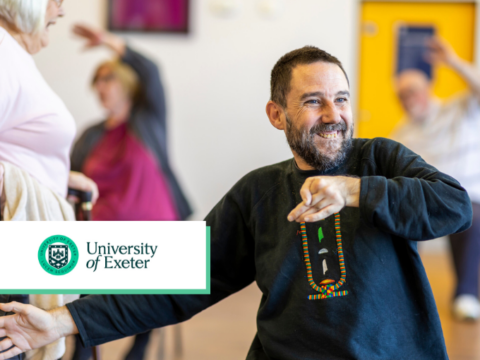
Quality of life for people with dementia living in residential and nursing home care substantially improved after staff took part in a digital training programme that was specially adapted to Covid-19 restrictions. The training also led to a significant drop in potentially harmful sedative medications prescribed to residents.
The iWHELD programme supported care home staff in delivering personalised care and encouraging meaningful social interactions. Through a digital platform featuring live coaching sessions led by trained coaches, the programme supported homes during the COVID-19 pandemic to enhance care and share best practices among peers.
Published in the journal Alzheimer’s & Dementia, the trial was delivered to staff supporting more than 700 residents with dementia across 149 residential homes in the UK, comparing iWHELD with usual care. In the iWHELD group, researchers found particular benefits in residents who contracted Covid-19, those who had agitation when the study began, and those taking psychiatric medications.
Led by the University of Exeter and King’s College London, and funded by UK Research and Innovation (UKRI), iWHELD is designed to support carers and residents by training staff in delivering personalised care, which puts residents at the heart of decision-making. The programme was specially adapted during the pandemic, so that it could be delivered remotely, with support available for care home staff, even in the most challenging circumstances for care homes.
Joanne McDermid, creator of the iWHELD platform and lead author of the paper, said: “Urgent action is needed to ensure care homes have access to dementia care training and support that is both high quality and shown to be effective. Every person deserves thoughtful and compassionate care and not everyone is receiving it. In response to the unfolding global pandemic, iWHELD was created as a ground-breaking, first-of-its-kind solution, placing care staff and people living with dementia at the heart of support for care homes and nursing homes. iWHELD leverages digital innovation to bring together stories, ideas, and communities. It’s the first programme to provide an effective, evidence based, affordable and scalable solution that can address the needs of care and nursing homes and critically, to improve the lives of the people with dementia.”
Katie Ives, manager of Stonebow House care home in Worcestershire, took part in the iWheld training along with er management team. She said: “We all really enjoyed it, and it’s made a huge difference to some of our residents. As part of the training around personalised care, we’ve realised we need to change our approaches and even Zur demeanours to communicate effectively with residents – so if someone is quite reserved, being very bubbly is less effective and relatable to that person. We’ve always tailored our approach to residents, but now we offer a wider variety of activities and clubs to suit people’s interests in their lives, and we’re seeing some residents spend more time in communal areas and less time in their rooms as a result.”
Professor Clive Ballard, of the University of Exeter Medical School, senior author on the paper, said: “People with dementia living in residential and nursing home care are among the most vulnerable in society, and care homes and their staff face an extremely challenging role. iWHELD is an effective, practical, and affordable programme that can enable staff to improve the lives of people wih dementia and can be delivered nationally and internationally – even amidst a pandemic.”
The paper is entitled ‘Impact of the iWHELD Digital Person-Centered Care Program on Quality of Life, Agitation and Psychotropic Medications in People with Dementia Living in Nursing Homes during the COVID-19 Pandemic: A Randomized Controlled Trial’, published in Alzheimer’s & Dementia.
The research was supported by the National Institute of Health Research (NIHR) Biomedical Research Centre at South London and Maudsley NHS Foundation Trust and King’s College London and the N~IHR Exeter Biomedical Research Centre. It was also supported by the NIHR Collaboration for Leadership in Applied Health Research and Care South-West Peninsula.

 Print This Post
Print This Post





